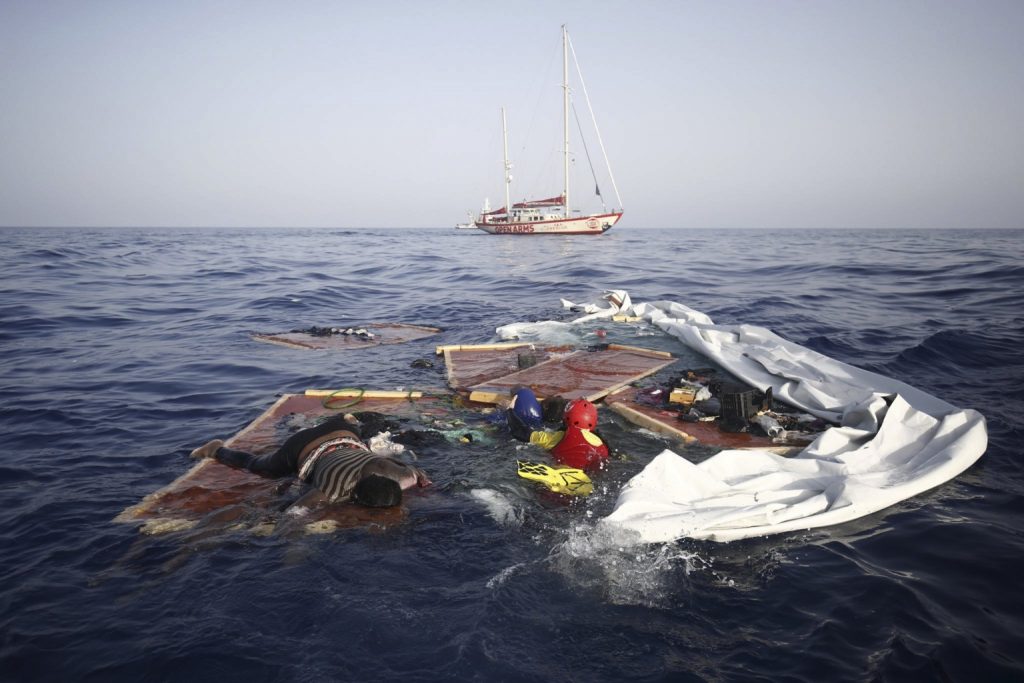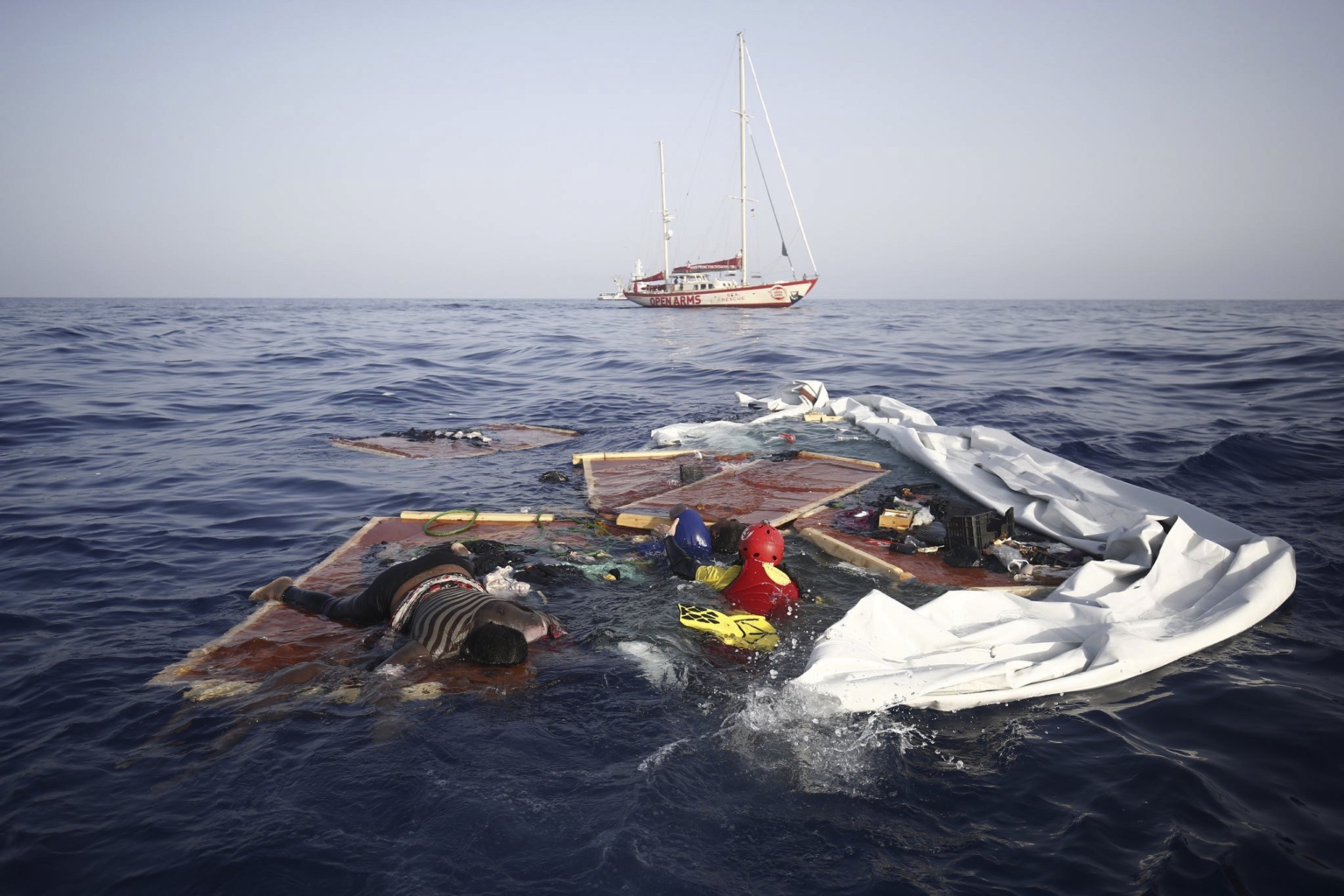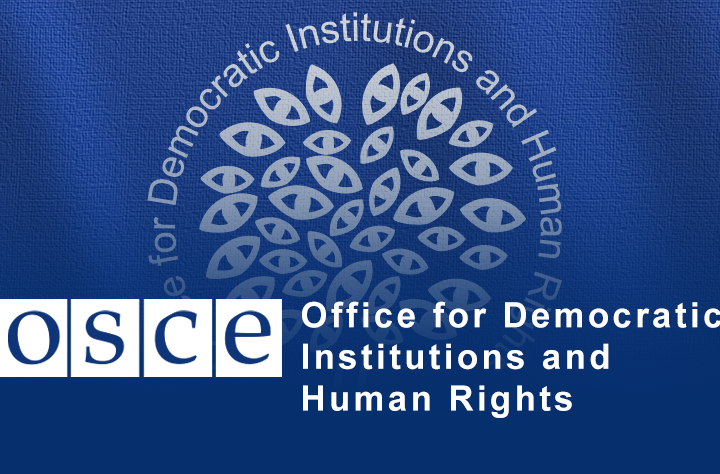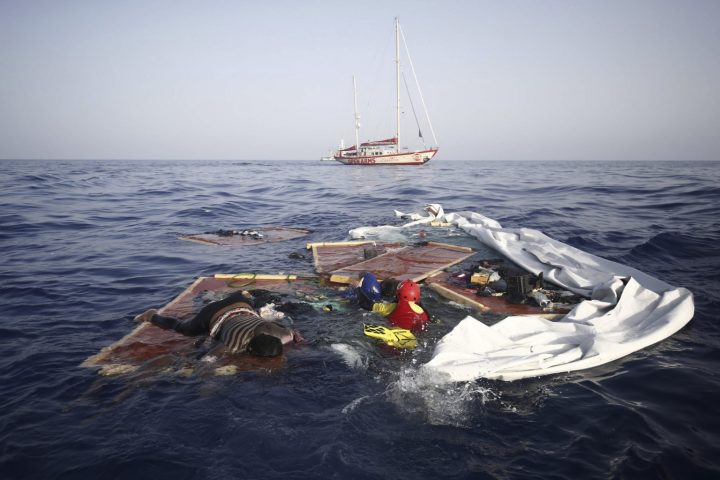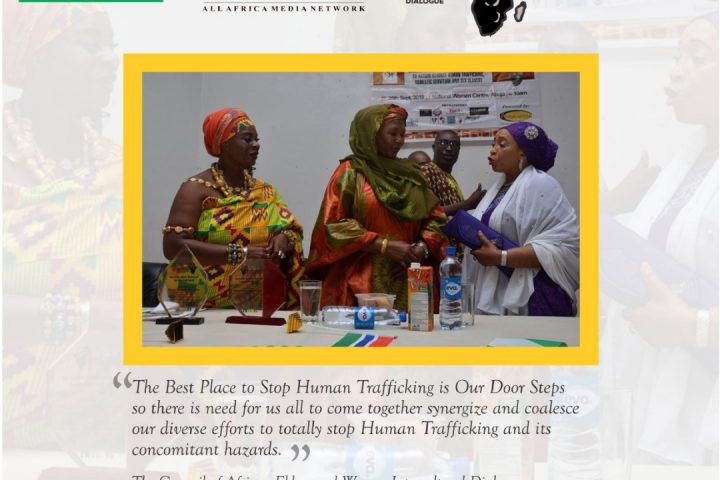Nigeria has been described as not only a source and transit country for victims of human trafficking, but is also fast becoming notorious as a major contributor to the swelling statistics regarding the modern-day slave market globally. This is akin to the ‘Japa’ phenomenon which has seen Nigerians escape their country through every imaginable route including by road through the deserts to Libya.
This was parts of findings by Associate Professor, Pius Adejoh of University of Lagos. He is a member of the team that carried out a study on : Irregular Migration, Human Trafficking and Modern Day Slavery: Challenges of the Re-Integration of Deportees and Returnees in Nigeria. He spoke during the presentation of the study in University of Lagos.
The Principal Investigator(PI) of the research Professor John Oyefara of the Department of Sociology, University of Lagos advised Nigerians traveling outside the country to do so with valid documents.
According to him the concept of irregular migration borders on legality. “Before you can go to a country you should be able to have the legal necessary documents. That can help us, but if you don’t have those papers, it means that illegally you are there. When you are in a country that is not the country of your origin and you did not have the papers as at the time you are there, it means that you are irregular. The word irregular means that you are illegal migrants. You move there without the necessary papers.”
He said that if you go to the airports today you will see thousands of Nigerians traveling outside the country because the economy situation of the country is not conducive. “So we need to do more to make sure that we do what is appropriate. Make Nigerians to be comfortable where they are and there will not be any tendency for them to say I want to leave my country, because there is no place like home. I am not saying that people should not travel. Traveling is part of development. We should travel with legality, purpose with vision because today out of the people that have traveled legally, we have high remittances in millions of dollars coming to Nigeria that is good. People travel to acquire knowledge, they get technology and they transfer back to Nigeria. Traveling is good but when you want to travel let it be legally, with the proper documentation.”
According to him many Nigerians are still becoming victims of irregular migration.” People move out of the country without proper documentation and some people are even smuggled. They get themselves involved in the issue of human trafficking. “
“This study has been able to uncover some of the issues, the drivers, the challenges they face and those people that now came back. That is the core issue that we are trying to see. What is the government doing? We see government bringing them back. We see the National Emergency Management Agency (NEMA) receiving them, but we have to strengthen the methods we use. Because harvest them and drop them out is not too good. We have to follow up, because many of them are going through so many challenges in terms of how to start off again. That is what I think the government should look into and see what they can do to be able to address this so that people that have been deported, the tendency of them to go back again can be reduced.”
“The intervention we have in Edo State is owned by non-governmental organization (NGO) people donated the facilities for them to do their work. I think there is a need to do more. Let us also have in other Geo- political zone if possible in the 36 states capitals. That when you hear a member of your state or citizen of your state had been deported, then the government should be able to bring them back to the country and rehabilitate them. By the time you rehabilitate them, you give them the necessary treatment. The figure of migration is all over the country. Even in the north that we thought that they are not traveling, many of them are also traveling to Saudi Arabia and other parts of the world. So it is not about one region is higher than any other one. The challenge is people are eager to leave the country that is the situation,” he said.
He said that this study tries to do regional differentials in the sense that it many of looks at the six Geo- political zones to see where are they going. “For example, we discover that people in the north they travel to Saudi Arabia, other countries like Iran and the rest. From the South they also travel to Europe and America. So we can see differentials where they go. And the motivating factor that is generic to all these is the economic situation. People still travel for greener pasture, to see where they can get a better things.”
“And even those people that travel with visas eventually they end up becoming irregular migrants because the moment you don’t have the required papers or fail to constantly update your papers,then that person’s status with time switch from regular to irregular migrants in their place of destination.
Oyefara, explained that the research aimed to discover the major drivers of human trafficking and proffers solutions to curb the rising menace across the country.
He said the exact statistics regarding the numbers of irregular migrants out of Nigeria to the global North especially, and to parts of Asia and Africa was unavailable because of its “clandestine nature.”He also said the consensus however, was that there was a continued upward trajectory since the turn of the century.
According to him “No thanks to the increasingly stringent/hostile immigration laws of developed countries especially and the activities of traffickers and brokers who deceitfully lure unsuspecting but desperate young people with promises of Eldorado in foreign lands.
“The research has found out that about 93 percent of all the people interviewed still want to embark on this desperate journey back to Western countries.
“Regional comparison shows that while having to start all over again is a common experience across the zones, stigmatization is more pronounced in South-South (42.2 percent), North-West (29.5 percent) and South-West (22.8 per cent ). Lack of family support is more pronounced in the South- South
“That is what I think the government should look into and see what it can do to be able to address the issues, so as to reduce the tendency for those deported trying to go back,” he stated.
The comparative study has found out that despite all the stringent and hostile immigration laws of developed countries, 93 per cent of Nigeria’s returnees and deportees still want to go on desperate journeys.
This according to them was the findings of a study where 536 participants across the geopolitical zones of the country were interviewed.
The study revealed that they were often traumatized as most of them were abandoned by family members with no means of livelihood to cope with life after returning back to the country.
However, to cope with the rising challenges and psychological effects they faced, the study proposed that governments should consider building residential homes for the returnees and deportees at capital cities across the country.
However, also presenting the findings of the research, Dr. Bamidele Alabi, stated that the challenges of re-integration in Nigeria includes harsh economic realities, absence of job opportunities, lack of skill and trade competency, lack of inadequate education and government’s insensitivity.
For another team member, Prof. Chinwe Nwanna, responses and strategies for rehabilitation and re-integration of regular returnees often begin with, “residential approach which enables returnees and deportees to face relevant rehabilitation solutions in a singular location.”
They however recommended that the government should provide an enabling environment for youths to thrive and ensure intensive, aggressive and sustained public education, enlightenment and sensitization against stigmatization.
“Relevant good (NAPTIP, NGO, NEMA, IOM, UNHCR etc) to be charged with rehabilitation and integration responsibilities and adequately empowered concerted efforts to be made to reduce “Naijaphobia” and promote the positive side of Nigeria. Empowerment and skills acquisition programmes to be organised for the returnees and reporters and families and communities to be educated on how to accept and assist.”
